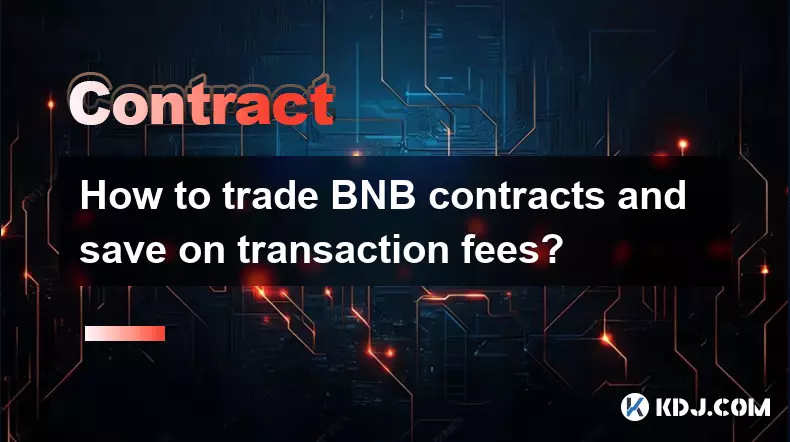-
 bitcoin
bitcoin $87959.907984 USD
1.34% -
 ethereum
ethereum $2920.497338 USD
3.04% -
 tether
tether $0.999775 USD
0.00% -
 xrp
xrp $2.237324 USD
8.12% -
 bnb
bnb $860.243768 USD
0.90% -
 solana
solana $138.089498 USD
5.43% -
 usd-coin
usd-coin $0.999807 USD
0.01% -
 tron
tron $0.272801 USD
-1.53% -
 dogecoin
dogecoin $0.150904 USD
2.96% -
 cardano
cardano $0.421635 USD
1.97% -
 hyperliquid
hyperliquid $32.152445 USD
2.23% -
 bitcoin-cash
bitcoin-cash $533.301069 USD
-1.94% -
 chainlink
chainlink $12.953417 USD
2.68% -
 unus-sed-leo
unus-sed-leo $9.535951 USD
0.73% -
 zcash
zcash $521.483386 USD
-2.87%
Who makes money from Bitcoin contract
Traders seeking profit from Bitcoin price fluctuations are the primary participants in Bitcoin contracts, employing strategies to capitalize on market movements and generate revenue through speculation.
Nov 13, 2024 at 07:08 pm

Bitcoin contracts, an innovative financial instrument, can generate significant revenue for various participants in the cryptocurrency ecosystem. By understanding the mechanisms and dynamics of these contracts, individuals and entities can identify opportunities to participate in this lucrative market.
Key Participants:1. Traders:- Traders are the primary participants in Bitcoin contracts, seeking to profit from price fluctuations by buying and selling futures, options, and other derivatives based on Bitcoin's value.
- They use their expertise to speculate on future market conditions and capitalize on market inefficiencies, earning profits or covering losses depending on the direction of price movements.
- Successful traders employ skillful strategies and leverage advanced trading platforms to maximize their returns.
- Cryptocurrency exchanges facilitate the trading of Bitcoin contracts, providing a secure platform for buyers and sellers to connect and execute orders.
- They charge trading fees for each contract executed, generating revenue from the volume of transactions that take place on their platform.
- Leading exchanges in the industry handle significant contract trading volume, resulting in substantial fee income.
- Brokers act as intermediaries between traders and exchanges, enabling individuals to access contract trading markets.
- They connect traders with liquidity providers, arrange required documentation, and provide support services.
- Brokers earn commissions on each contract trade facilitated, adding to their revenue stream.
- Liquidity providers supply the necessary liquidity to contract markets, ensuring that traders can easily enter and exit positions.
- They place buy or sell orders at predetermined prices, absorbing trading orders and facilitating the matching of buyers and sellers.
- In return for their market-making activities, liquidity providers capture the difference between the bid and ask prices, earning a spread on each trade.
- Miners play a crucial role in securing the Bitcoin network, verifying transactions and competing to create new blocks on the blockchain.
- Bitcoin miners receive rewards in the form of block rewards and transaction fees for their computational efforts.
- While not directly involved in contract trading, miners indirectly contribute to the overall liquidity and security of the Bitcoin ecosystem, which supports the contract market.
- Smart contract platforms like Ethereum provide the underlying infrastructure for developing and executing automated contracts, including those related to Bitcoin assets.
- These platforms charge gas fees for every transaction executed on their network, capturing revenue from the utilization of their blockchain services.
- By enabling the creation of sophisticated financial contracts, smart contract platforms play a vital role in supporting the Bitcoin contract ecosystem.
- Derivatives issuers create and sell Bitcoin futures, options, and other contract products to traders and investors.
- They take on the risk of the underlying asset, while traders speculate on future market movements.
- Issuers generate revenue from the premium paid by traders when purchasing these contracts.
- Hedge funds manage large pools of capital and employ sophisticated investment strategies to maximize returns for their investors.
- Many hedge funds actively participate in Bitcoin contract trading, utilizing leverage and complex strategies to amplify profits.
- Hedge funds generate profits by capturing market inefficiencies, profiting from price movements, or managing risks through contract hedging.
Disclaimer:info@kdj.com
The information provided is not trading advice. kdj.com does not assume any responsibility for any investments made based on the information provided in this article. Cryptocurrencies are highly volatile and it is highly recommended that you invest with caution after thorough research!
If you believe that the content used on this website infringes your copyright, please contact us immediately (info@kdj.com) and we will delete it promptly.
- Big Apple Bit: Bitcoin's Rebound Hides a Deeper Dive, Say Wave 3 Watchers
- 2026-02-04 07:00:03
- DeFi Vaults Poised for 2026 Boom: Infrastructure Matures, Yield Optimization and Liquidity Preferences Shape the Future
- 2026-02-04 06:50:01
- Royal Canadian Mint Unveils 'Gold Dime' with Astounding High Value, Captivating Collectors
- 2026-02-04 06:55:01
- Datavault AI Dives into Digital Collectibles with Dream Bowl Meme Coin II, Navigating the Wild West of Web3
- 2026-02-04 06:30:02
- New VistaShares ETF Merges Bitcoin and Treasuries for Enhanced Income
- 2026-02-04 06:55:01
- Epstein's Bitcoin Bet: Newly Uncovered Statements Detail Dark Figure's Early Crypto Foray
- 2026-02-04 06:40:02
Related knowledge

How to close a crypto contract position manually or automatically?
Feb 01,2026 at 11:19pm
Manual Position Closure Process1. Log into the trading platform where the contract is active and navigate to the 'Positions' or 'Open Orders' tab. 2. ...

How to understand the impact of Bitcoin ETFs on crypto contracts?
Feb 01,2026 at 04:19pm
Bitcoin ETFs and Market Liquidity1. Bitcoin ETFs introduce institutional capital directly into the spot market, increasing order book depth and reduci...

How to trade DeFi contracts during the current liquidity surge?
Feb 01,2026 at 07:00am
Understanding Liquidity Dynamics in DeFi Protocols1. Liquidity surges in DeFi are often triggered by coordinated capital inflows from yield farming in...

How to use social trading to copy crypto contract experts?
Feb 02,2026 at 07:40am
Understanding Social Trading Platforms1. Social trading platforms integrate real-time market data with user interaction features, enabling traders to ...

How to trade BNB contracts and save on transaction fees?
Feb 03,2026 at 12:39am
Understanding BNB Contract Trading Mechanics1. BNB contracts are derivative instruments traded on Binance Futures, allowing users to gain leveraged ex...

How to build a consistent crypto contract trading plan for 2026?
Feb 02,2026 at 10:59pm
Defining Contract Specifications1. Selecting the underlying asset requires evaluating liquidity depth, historical volatility, and exchange support acr...

How to close a crypto contract position manually or automatically?
Feb 01,2026 at 11:19pm
Manual Position Closure Process1. Log into the trading platform where the contract is active and navigate to the 'Positions' or 'Open Orders' tab. 2. ...

How to understand the impact of Bitcoin ETFs on crypto contracts?
Feb 01,2026 at 04:19pm
Bitcoin ETFs and Market Liquidity1. Bitcoin ETFs introduce institutional capital directly into the spot market, increasing order book depth and reduci...

How to trade DeFi contracts during the current liquidity surge?
Feb 01,2026 at 07:00am
Understanding Liquidity Dynamics in DeFi Protocols1. Liquidity surges in DeFi are often triggered by coordinated capital inflows from yield farming in...

How to use social trading to copy crypto contract experts?
Feb 02,2026 at 07:40am
Understanding Social Trading Platforms1. Social trading platforms integrate real-time market data with user interaction features, enabling traders to ...

How to trade BNB contracts and save on transaction fees?
Feb 03,2026 at 12:39am
Understanding BNB Contract Trading Mechanics1. BNB contracts are derivative instruments traded on Binance Futures, allowing users to gain leveraged ex...

How to build a consistent crypto contract trading plan for 2026?
Feb 02,2026 at 10:59pm
Defining Contract Specifications1. Selecting the underlying asset requires evaluating liquidity depth, historical volatility, and exchange support acr...
See all articles





















![[FULL STORY] My grandfather left me his [FULL STORY] My grandfather left me his](/uploads/2026/02/03/cryptocurrencies-news/videos/origin_6981f669e270a_image_500_375.webp)




















































